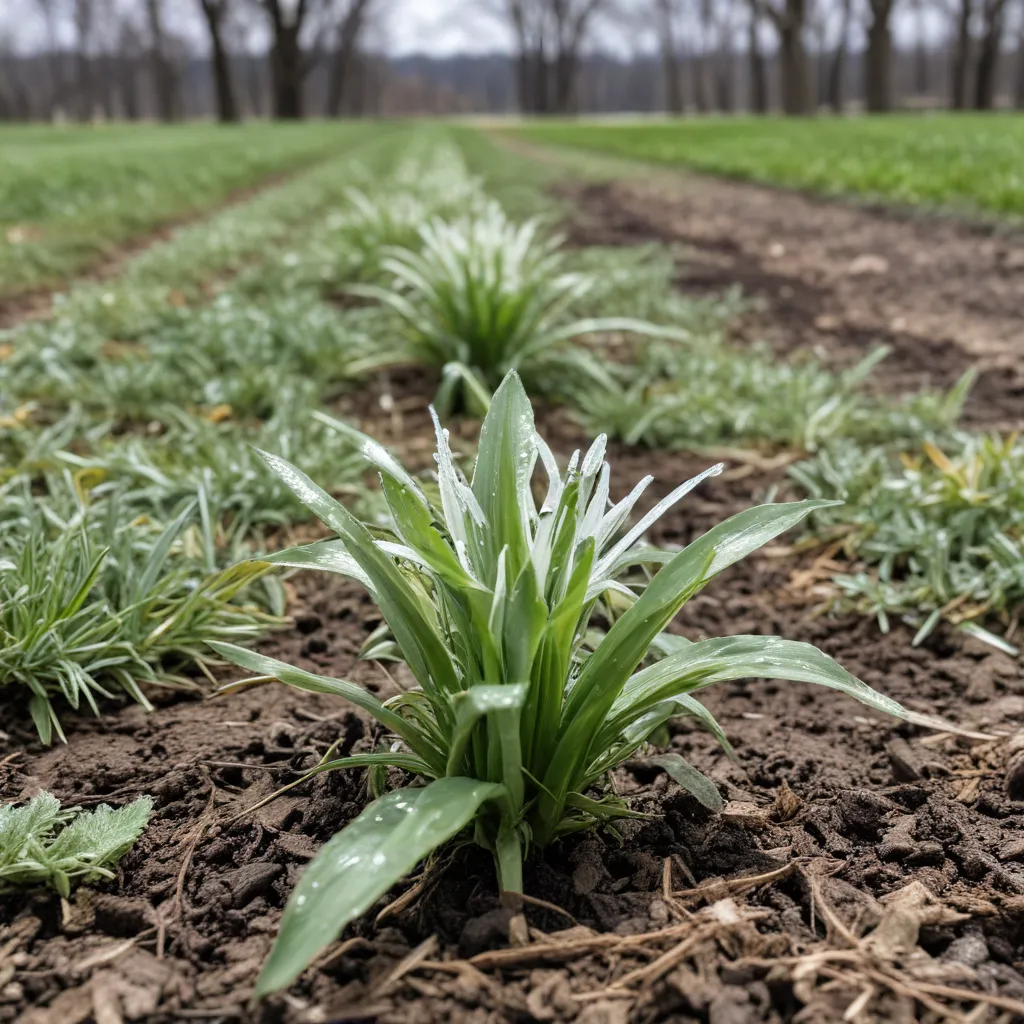
Effects of Spring Freeze Damage and Training Systems on the Viticulture Performance of Young ‘Marquette’ Grapevines
The release of cold-hardy wine grape cultivars has been a boon for the wine industry in the northeastern and upper midwestern United States, allowing for the expansion of wine production into regions previously inhospitable to traditional Vitis vinifera grapes. Among these, ‘Marquette’ has emerged as a promising option, prized for its cold-hardiness, early ripening, and desirable enological properties. However, ‘Marquette’ also presents some challenges for vintners, including its susceptibility to spring freeze damage due to its early budbreak.
Spring Freeze Damage
Causes of Spring Freeze Damage
Spring freeze events can occur when clear, calm nights allow for radiative cooling, leading to sub-freezing temperatures near the ground. This is particularly problematic for early-budbreaking cultivars like ‘Marquette’, which can sustain significant damage to their tender green tissues and inflorescences just after budburst. In contrast, advective freeze events caused by moving cold air masses are less common in spring but can be even more devastating, potentially causing injury to the permanent woody structures of the vine.
Impacts on Plant Growth
Freeze damage can manifest in various ways, from partial necrosis of shoot tips to complete loss of primary buds. The severity of the injury depends on factors like cultivar, phenological stage, and microclimate within the vineyard. Shoots emerging from the lower canopy, closer to the ground, often sustain more significant damage than those higher up. Severely affected vines may require the development of secondary shoots, which can delay and uneven fruit ripening.
Mitigation Strategies
Growers have several options to protect ‘Marquette’ vines from spring freeze events. Site selection and cultivar choice are crucial, as early-budbreaking varieties should be avoided in frost-prone areas. Passive techniques like delayed pruning or double pruning can delay budburst and expose less vulnerable shoot growth to late frosts. Active measures such as wind machines or overhead sprinklers can also help, though their efficacy depends on factors like inversion strength and wind speed.
Training Systems
Trellis Systems
The training system used for ‘Marquette’ vines can also influence their susceptibility to spring freeze damage. Trellising that positions the shoots and buds higher off the ground, such as a high wire cordon (HWC), may provide some protection by keeping tender green tissues out of the coldest air near the soil surface. In contrast, a four-arm Kniffin (4AK) system, with canes at multiple heights, could lead to greater variability in freeze damage between upper and lower shoots.
Pruning Techniques
Pruning strategies can also play a role. Leaving more buds during the dormant season, as is typical with the 4AK system, can help offset potential crop losses from freeze events by providing more fruitful shoots. However, this must be balanced against the risk of overcropping and potential negative impacts on fruit quality.
Canopy Management
Beyond the training system, canopy management practices like shoot positioning and leaf removal can also influence ‘Marquette’ performance. Proper canopy management can improve air flow, light exposure, and spray penetration, all of which can enhance the vine’s resilience to both biotic and abiotic stresses.
Crop Yield
Fruit Quality
The impacts of spring freeze damage on ‘Marquette’ crop yield and fruit quality can be substantial. Severely damaged vines may produce drastically reduced yields, with clusters that are uneven in maturity. Even in the face of freeze events, ‘Marquette’ has shown the ability to compensate by producing fruitful secondary shoots, though this can lead to challenges in achieving uniform ripeness.
Productivity Metrics
In years with spring freeze damage, the training system used can significantly influence yield metrics. A 4AK system, with its greater bud number, may maintain higher overall yields compared to a HWC system, despite similar levels of shoot damage. This highlights the importance of selecting a training approach that can provide a buffer against unpredictable environmental stresses.
Economic Considerations
For growers, the economic implications of spring freeze events can be severe, potentially wiping out an entire vintage’s worth of production. The choice of training system, canopy management practices, and investment in active protection measures must be weighed against the frequency and intensity of frost risk in a given region. Careful planning and a diversified approach are key to ensuring the long-term viability of ‘Marquette’ vineyards in challenging climates.
Environmental Factors
Climate Conditions
The timing and severity of spring freeze events can vary greatly from year to year, making it challenging to develop a one-size-fits-all management strategy. Monitoring growing degree days, tracking temperature inversions, and staying attuned to local weather patterns are all essential for identifying and responding to potential threats.
Soil Characteristics
In addition to climate, the soil acidity, drainage, and other edaphic factors of the vineyard site can also influence a vine’s resilience to spring freezes. Well-drained soils, for example, may allow for better air flow and reduce the risk of radiative cooling near the ground.
Microclimate Influences
Even within a single vineyard, microclimatic variations can lead to significant differences in freeze damage. Factors like slope, aspect, and proximity to wooded areas can all affect air movement and temperature patterns, underscoring the importance of thorough site evaluation and the strategic placement of protection measures.
As the wine industry continues to expand into cool-climate regions, cultivars like ‘Marquette’ will play an increasingly important role. By understanding the complex interplay of training systems, canopy management, and environmental conditions, growers can develop tailored strategies to mitigate the risks of spring freeze damage and optimize the productivity and quality of their ‘Marquette’ vineyards. Visit Wine Garden Inn to learn more about our estate-grown produce, gourmet breakfasts, and behind-the-scenes of our winemaking journey.
